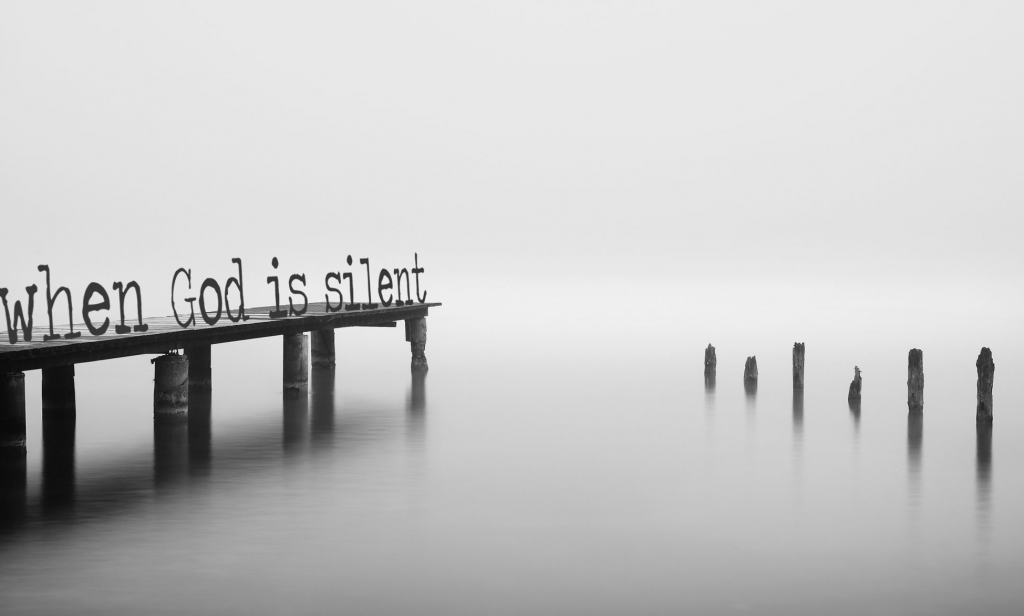 |
| New Orleans churchyard in the aftermath of Hurricane Katrina. |
In the book of Job, the character of Job loses all he has because of afflictions from "the Accuser" who bets God that Job will curse Him if Job suffers enough. Job spends chapters arguing with his wife and friends about the reasons for his suffering and pleading with God to answer his prayers. In the third lesson assigned for reading in the lectionary this fall, God finally answers Job.
And what an answer it is.
And what an answer it is.
"Then the LORD answered Job out of the whirlwind: 'Who is this that darkens counsel by words without knowledge? Gird up your loins like a man. I will question you, and you shall declare to me'" (Job 38:1-3). God proceeds to ask Job dozens of questions about the power of God. Can you measure the foundations of the earth or number all the clouds in the sky? Can you command the lightning or create a sea monster for fun?
God's response to Job is to put his questions in a broader context. The central tension that Job raises is “God is just” and “I am innocent.” The idea being that a just God wouldn't let an innocent person suffer. But God’s questions to Job undermine the very premise of Job’s complaint.
If you want to understand suffering, then can you first understand the complexities of the earth? Can you understand the tiny details of the galaxy and everything living in it? If not, then why do you get to decide what’s just? In this complex, crazy world, who said innocent people never face trouble? I'm God and I'm working with knowledge you can't possibly grasp.
God's questions to Job show there is a paradox we all live in. Each of us is unique and distinctly important to the world around us, but we are also largely insignificant in a world with billions of people and infinitely complex ecosystems. Therefore tragedies are both personal and massive. Disasters can hits thousands of people or cancer can infect millions and we can understand that most of the affects are random, but when they affect me or someone I love we can't help but look for a reason.
And sometimes there isn't one. Sometimes, God suggests, there are enormous systems at play around us and we just get caught in the sweep. And if there is a reason, it is far more complicated that we can grasp.
None of that is to say that God is unjust or uncaring, simply that the world is more chaotic and unpredictable than our reason-seeking brains would like and justice might not fit our simple definitions. Jesus himself says that the sun shines and the rain falls on the just and unjust alike (Matthew 5:45).
Martin Luther wrote that God had a visible side (deus revelatus) and a hidden side (deus absconditus). The visible side is what we can perceive and understand as humans, but most of God is hidden from us, Luther said, and the part we can see is only God's back. In Job, the writer lays the answer to much of life's suffering at the feet of the hidden God. How can we understand suffering when we cannot understand God?
And sometimes there isn't one. Sometimes, God suggests, there are enormous systems at play around us and we just get caught in the sweep. And if there is a reason, it is far more complicated that we can grasp.
None of that is to say that God is unjust or uncaring, simply that the world is more chaotic and unpredictable than our reason-seeking brains would like and justice might not fit our simple definitions. Jesus himself says that the sun shines and the rain falls on the just and unjust alike (Matthew 5:45).
Martin Luther wrote that God had a visible side (deus revelatus) and a hidden side (deus absconditus). The visible side is what we can perceive and understand as humans, but most of God is hidden from us, Luther said, and the part we can see is only God's back. In Job, the writer lays the answer to much of life's suffering at the feet of the hidden God. How can we understand suffering when we cannot understand God?
On it's own, such an answer is unsatisfying. It smacks too much of the condescending adult who tut-tuts a child and says, "You just couldn't understand..." But that's why the revealed God is such an important part of this struggle.
Luther said that since we cannot know the hidden God, we must find faith in the God as God chooses to be seen by us and God chose to be revealed in Jesus Christ. Jesus makes it clear that God doesn't wish us harm and that we are loved. God is the business of promoting true life and inviting us to do the same. And in John 11, we see Jesus weeping at the tomb of his friend Lazarus, visibly disturbed by the pain death has caused. That's the revealed God: standing with us in our pain, joining us in our mourning, and promising that pain won't be the last word.
Job raises some deeply important questions that it cannot fully answer and we are still wrestling with thousands of years later. Ultimately there is mystery around suffering that we must content ourselves to dwell within for some time. We may not always understand suffering, but we are not alone when we suffer. We are not alone because the same questions are asked by millions like us. And we are not alone because God chooses to be found in suffering with us.
From the Gray,
Pastor Ari
“I want a reason for the way things have to be. I need a hand to help build up some kind of hope inside of me.” -Train, “Calling All Angels”

